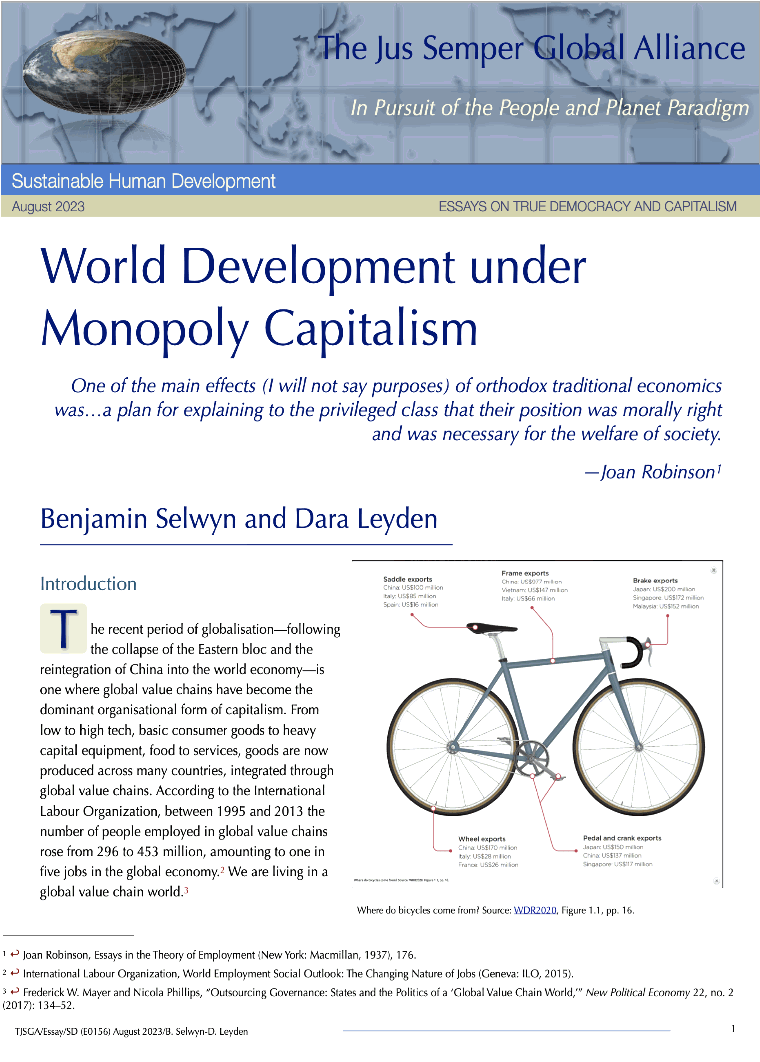Monopoly Capitalism One of the main effects (I will not say purposes) of orthodox traditional economics was…a plan for explaining to the privileged class that their position was morally right and was necessary for the welfare of society. —Joan Robinson
Benjamin Selwyn and Dara Leyden The big question is whether this global value chain world is contributing to, or detracting from, real human development. Is it establishing a more equal, less exploitative, less poverty-ridden world? Which political economic frameworks are best placed to illuminate and explain the workings of this Recent critical scholarship has applied monopoly capital concepts and categories to the analysis of global value chains and have illuminated how global value chains represent the latest form of monopoly capital on a world scale. For a full review of this essay, click here or on the picture to download the pdf file.
|
- © The Jus Semper Global Alliance


| Home |  | Resources |  | Economic Data |  | World Development under Monopoly Capitalism |


